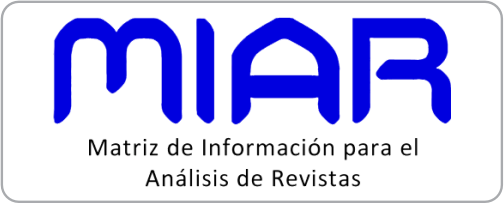Systemic-cybernetic approach in the design of a management system of a university higher education institution
DOI:
https://doi.org/10.51252/rcsi.v2i1.250Keywords:
accreditation, holistic, organizational cybernetics, process mapAbstract
The research affects the design of the management system in the "university higher education institution" (IESU) for accreditation purposes through the systemic-cybernetic approach. The purpose is to detail the construction of the process-based management system. The systemic-cybernetic design methodology is used focused on meeting criteria from the relevant regulations of the IESU and standardization of management systems. The results were the Faculty's viable system model, the processes grouped into systemic functions and the process map. Likewise, the research shows the organizational viability of the IESU and concludes that the systemic-cybernetic approach addresses the organization by clarifying its desirable and idealized organizational goals and means, which affects the design of the institution's own and particular management system
Downloads
References
Ackoff, R. (2006). Why Few Organizations Adopt Systems Thinking. Systems Research and Behavioral Science, 23(5), 705-708.
https://doi.org/10.1002/sres.791
Beer, S. (1985). Diagnosing the System for Organizations (1sd ed.). Wiley.
Bretz, L., Könemann, U., Anacker, H., & Dumitrescu, R. (2020). A contribution to the design of organizational structures suitable for Systems Engineering. Procedia CIRP 91, 101-106. https://doi.org/10.1016/j.procir.2020.02.154
Checkland, P. (2019). Reflections on 40 years in the management field: A Parthian shot (friendly). Journal of the Operational Research Society, 70(8), 1219-1223. https://doi.org/10.1080/01605682.2019.1590137
Churchman, C. W. (1968). The Systems Approach. Delacorte Press.
Churchman, C. (1995). Ethics and Science. Systems Research, 12(4), 267-271. https://doi.org/10.1002/sres.3850120406
Collopy, F. (2019). Why the Failure of Systems Thinking Should Inform the Future of Design Thinking. Design Issues, 97–100.
https://doi.org/10.1162/desi_a_00538
Espejo, R., & Reyes, A. (2011). Organizational Systems: Managing Complexity with the Viable System Model. Springer
Flores, S., & Ludueña, M. (1983). Teoría General de Sistemas y Cibernética, Cuaderno Nro 7. Grupo de Estudios de Sistemas Integrados.
Glanville, R. (2007). Try again. Fail again. Fail better:the cybernetics in design and thedesign in cybernetics. Kybernetes, 36(9/10), 1173-1206. https://doi.org/10.1108/03684920710827238
Hernández Sampieri, R., Fernández Collado, C., & Baptista Lucio, P. (2014). Metodología de la Investigación. Mc Graw Hill Education.
Hurtado de Barrera, J. (2010). Metodología de la Investigación. Guía para la comprensión holística de la ciencia. Quirón.
Jackson, M. (2019). Critical Systems Thinking and the Management of Complexity. John Wiley & Sons Ltd.
Ley General de Educación, Ley Nro. 28044 [MINEDU]. (28 de Julio de 2003). Lima, Lima, Perú.
Decreto Supremo Nº 012-2020-MINEDU del 2020 [MINEDU]. Política Nacional de Educación Superior y Técnico-Productiva.(31 de agosto del 2020). Lima, Lima, Perú
Nadler, G. (1985). Systems methodology and design. IEEE Transactions on Systems, Man, and Cybernetics, 15(6), 685–697. https://doi.org/10.1109/TSMC.1985.6313452
Pérez Ríos, J. (2012). Design and Diagnosis for Sustainable Organizations The Viable System Method. Springer.
Saeed Rezk, S., & Gamal, S. (2019). An Organizational Cybernetics Framework for Designing a Viable Higher Education System. Systemic Practice and Action Research, 33, 703–724. https://doi.org/10.1007/s11213-019-09505-9
Schwaninger, M. (2009). Intelligent Organizations. Germany: Springer.
Taipe Castro, R. (2009c). Diseño de la universidad basado en el enfoque de sistema viable. Tomo III. UNCP.
Taipe Castro, R. (2018). Estudio sistémico interpretativo de una institución de educación superior universitaria para el diseño de un sistema de gestión. UNCP.
Taipe Castro, R. M. (2009a). Identificación y análisis de la UNCP Tomo I. UNCP.
Taipe Castro, R. M. (2009b). Diagnóstico de la universidad basado en el enfoque de sistema viable Tomo II. UNCP.
UNESCO. (2017). Six ways to ensure higher education leaves no one behind. Global Education Monitoring.
Vriens, D., & Achterbergh, J. (2011). Cybernetically sound organizational structures I: de Sitter’s design theory. Kybernetes, 40(3/4), 405-424.
Published
How to Cite
Issue
Section
License
Copyright (c) 2022 Robensoy Marco Taipe-Castro

This work is licensed under a Creative Commons Attribution 4.0 International License.
The authors retain their rights:
a. The authors retain their trademark and patent rights, as well as any process or procedure described in the article.
b. The authors retain the right to share, copy, distribute, execute and publicly communicate the article published in the Revista Científica de Sistemas e Informática (RCSI) (for example, place it in an institutional repository or publish it in a book), with an acknowledgment of its initial publication in the RCSI.
c. Authors retain the right to make a subsequent publication of their work, to use the article or any part of it (for example: a compilation of their works, notes for conferences, thesis, or for a book), provided that they indicate the source of publication (authors of the work, journal, volume, number and date).














